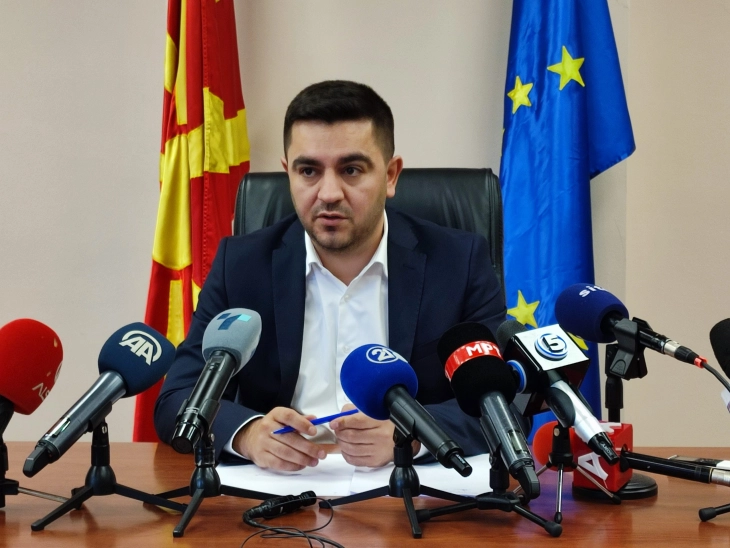Bekteshi: Hard winter ahead, no power restrictions if things go as planned
- Post By Ivan Kolekevski
- 12:55, 22 July, 2022

Skopje, 22 July 2022 (MIA) – A hard winter is ahead and the Ministry of Economy is planning to declare a state of energy crisis in August, said Minister Kreshnik Bekteshi on Friday and added no power restrictions would take place if things go as planned.
“We are planning to declare the state of energy crisis in August, which incorporates various measures, including restrictions. However, it things go as planned and there is no ban for electricity import, as we have experienced from Bulgaria before, I don’t believe power restrictions will happen,” said Minister Bekteshi.
According to him, the coming winter will be hard because of its unpredictability, both for North Macedonia and the region, but also depending on developments related to the war in Ukraine.
“Today we received good news that the gas supply has resumed. We are making efforts to have alternatives regarding gas deliveries. In case of a complete ban, we will have to use an alternate energy resource in order to keep heating and industrial capacities operational, as well as maintain electricity supply for industry and households,” noted Bekteshi.
For this purpose, he added, crude oil is already being procured via the Thessaloniki port, the only fuel that heating and industrial capacities can transfer to.
The Economy Minister said efforts are made to ensure gas supply from sources other than Gazprom, which depends on capacities envisaged by the agreement of Bulgaria’s company Bulgartransgaz with the Russian corporation by 2030.
“If Bulgartransgaz frees these capacities, we are ready to use gas from other sources, including Azerbaijan but also energy terminals in Greece or Turkey,” said Bekteshi.
He said the current electricity price at the HUPX electricity exchange is about EUR 420 per MWh or nearly ten time higher than the one offered by Power Plants of North Macedonia (ESM), which stands at EUR 48 per MWh.
“Small and micro companies are in a way subsidized by the state, with prices ranging between EUR 205-210 per MWh, which is half the market price. Only 4,500 companies are on the free market, most of which have contracts for electricity procurement at lower prices than the market one. Nevertheless, I will meet with the Economic Chamber in order to see what we can do to help,” said Bekteshi.
He said the third bloc of mining power complex Bitola would be operational as of October 1, while mining power complex Oslomej as of September. One bloc of thermal power plant Negotino is set to be launched next week, whereas the 90MWh second bloc would be used solely for the industry.
In addition, coal excavation activities have intensified, with coal procurement agreements already signed with companies from Greece and Albania, while similar agreement set to be signed with a Kosovo company.
The capacity of reservoirs is at about 50 percent, which is by 20 percent higher compared to 2021, while hydro-potentials have not been used for electricity production since the onset of 2022 in order to save them for the winter period.
Bekteshi also said the European Bank for Reconstruction and Development (EBRD) has provided EUR 100 million to ESM. These funds are allocated for electricity, coal and crude oil purchases in case of shortages.







